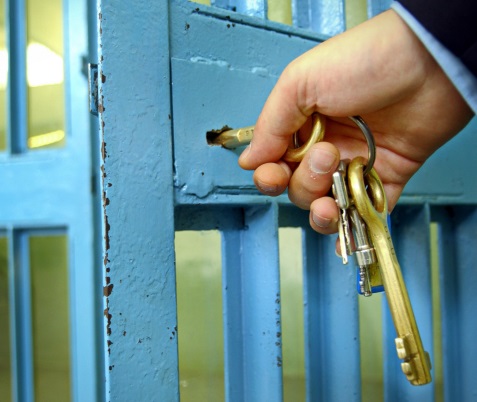Crime Scene Technician - Certification and Training
Crime scene technicians play a crucial role in solving criminal cases by meticulously gathering and analyzing evidence from crime scenes. These skilled professionals combine scientific knowledge with keen attention to detail to uncover clues that can make or break an investigation.
A career as a crime scene technician typically employers prefer a bachelor’s degree in forensic science, criminal justice, or a related field, along with specialized training in evidence collection and analysis techniques. Many technicians start with an associate degree or certificate program in crime scene investigation before advancing their education and experience.
The work of a crime scene technician involves photographing crime scenes, collecting physical evidence, and maintaining proper chain of custody for all items. They may also assist in laboratory analysis and provide expert testimony in court. While the job can be challenging and sometimes emotionally taxing, many find it rewarding to contribute to the pursuit of justice through scientific methods and careful observation.
Becoming a Crime Scene Technician
The path to becoming a crime scene technician involves educational requirements, specialized training, practical experience, and potential certification. Aspiring technicians can pursue various routes to enter this field, with opportunities to specialize and advance their careers.
Educational Pathways
Most crime scene technician positions require at least an associate degree, though many employers prefer candidates with a bachelor’s degree. This may even be a requirement in some states. Relevant fields of study include criminal justice, forensic science, or related disciplines. Some programs offer specific crime scene technician certificates.
Key courses often include:
- Crime Scene Photography
- Evidence Collection and Preservation
- Fingerprint Analysis
- DNA Analysis
- Bloodstain Pattern Analysis
Some technicians begin their careers in law enforcement and transition to crime scene work later. This path may involve attending a police academy before or after college education.
Training and Certification
On-the-job training is crucial for crime scene technicians. New hires typically undergo supervised training under experienced investigators before working independently. The duration of this training varies by organization.
Certification, while not always mandatory, can enhance career prospects. Common certifications include:
- Certified Crime Scene Investigator (CCSI)
- Certified Crime Scene Analyst (CCSA)
- Certified Senior Crime Scene Analyst (CSCSA)
These certifications often require a combination of education, experience, and passing an exam. Continuing education is typically necessary to maintain certification status.
Internships and Practical Experience
Gaining hands-on experience is vital for aspiring crime scene technicians. Many academic programs offer internships with local law enforcement agencies or forensic labs. These opportunities provide valuable exposure to real-world crime scene processing techniques.
Students can also seek volunteer positions or part-time work in related fields. Participating in mock crime scene investigations, attending workshops, and joining professional organizations can further enhance practical skills.
Networking with professionals in the field during internships or volunteer work can lead to job opportunities after graduation.
Specialization in Crime Scene Investigation
As technicians gain experience, they may choose to specialize in specific areas of crime scene investigation. Some popular specializations include:
- Bloodstain Pattern Analysis
- Trace Evidence Collection
- Digital Forensics
- Ballistics
- Arson Investigation
Specialization often requires additional training and certification. Some technicians pursue advanced degrees in forensic science or related fields to enhance their expertise and career prospects. Staying current with technological advancements and new investigative techniques is essential for career growth in this field. Attending conferences, workshops, and continuing education courses helps technicians maintain and expand their skill set.
Find Your Crime Scene Investigation Program
| Quick Facts: Forensic Science Technicians | |
|---|---|
| 2023 Median Pay ?The wage at which half of the workers in the occupation earned more than that amount and half earned less. Median wage data are from the BLS Occupational Employment and Wage Statistics survey. In May 2023, the median annual wage for all workers was $48,060. | $64,940 per year $31.22 per hour |
| Typical Entry-Level Education ?Typical level of education that most workers need to enter this occupation. | Bachelor's degree |
| Work Experience in a Related Occupation ?Work experience that is commonly considered necessary by employers, or is a commonly accepted substitute for more formal types of training or education. | None |
| On-the-job Training ?Additional training needed (postemployment) to attain competency in the skills needed in this occupation. | Moderate-term on-the-job training |
| Number of Jobs, 2023 ?The employment, or size, of this occupation in 2023, which is the base year of the 2023-33 employment projections. | 18,600 |
| Job Outlook, 2023-33 ?The projected percent change in employment from 2023 to 2033. The average growth rate for all occupations is 4 percent. | 14% (Much faster than average) |
| Employment Change, 2023-33 ?The projected numeric change in employment from 2023 to 2033. | 2,500 |
Roles and Responsibilities
Crime scene technicians play a crucial role in criminal investigations. Their work involves meticulous evidence collection, analysis, and collaboration with law enforcement agencies to solve crimes.
Evidence Collection and Preservation
Crime scene technicians are responsible for collecting and preserving physical evidence at crime scenes. They carefully document the scene through photographs, sketches, and detailed notes. Technicians use specialized tools and techniques to gather various types of evidence including fingerprints, DNA samples, hair, fibers, and bodily fluids. They must handle evidence with extreme care to prevent contamination.
Proper packaging and labeling of collected items are essential to maintain the chain of custody. This ensures the integrity of evidence for future analysis and potential use in court proceedings. Crime scene technicians also assist in reconstructing events at the scene, helping investigators understand what transpired during the crime.
Analyzing Physical Evidence
Once evidence is collected, technicians begin the analysis process. They use various scientific methods and forensic technologies to examine items for clues.
This may involve:
- Comparing fingerprints to database records
- Analyzing blood spatter patterns
- Examining bullet trajectories
- Studying shoe and tire impressions
Technicians must be proficient in using specialized equipment such as microscopes, spectrophotometers, and alternative light sources. They interpret results and prepare detailed reports of their findings.
Forensic Laboratory Work
Much of a crime scene technician’s work takes place in the forensic laboratory. Here, they conduct in-depth analyses of collected evidence using advanced scientific techniques.
Common laboratory tasks include:
- DNA Profiling
- Toxicology Screenings
- Ballistics Testing
- Trace Evidence Analysis
Technicians must maintain strict protocols to ensure accurate results and prevent cross-contamination. They keep detailed records of all tests performed and results obtained.
Collaboration with Law Enforcement
Crime scene technicians work closely with detectives, investigators, and other law enforcement personnel. They provide valuable insights that help guide investigations.
Technicians may be called upon to:
- Explain scientific findings to non-technical audiences
- Testify in court as expert witnesses
- Assist in developing investigative strategies
- Provide ongoing support throughout the case
Effective communication skills are essential, as technicians must convey complex information clearly and accurately to various stakeholders in the criminal justice system.
Find Your Crime Scene Investigation Program
Important Key Skills for Success for this Field
Crime scene technicians rely on a diverse set of skills to excel in their roles. These abilities encompass meticulous observation, technical expertise, clear communication, and rigorous evidence handling protocols.
Attention to Detail and Accuracy
Attention to detail is paramount for crime scene technicians. They must carefully observe and document every aspect of a crime scene, no matter how small or seemingly insignificant.
This skill involves:
- Thorough examination of physical evidence
- Precise measurements and documentation
- Spotting subtle patterns or anomalies
Accuracy in collecting and preserving evidence is crucial. Even minor errors can compromise an entire investigation. Technicians must follow strict protocols to ensure the integrity of evidence. They use specialized tools and techniques to gather evidence without contamination. This includes proper packaging, labeling, and storage of items collected from the scene.
Technical Proficiency and Problem Solving
Crime scene technicians must be proficient in various technical skills. They operate sophisticated equipment and apply scientific principles to analyze evidence.
Key technical skills include:
- Forensic Photography
- Fingerprint Collection and Analysis
- DNA Sample Collection
- Trace Evidence Recovery
Problem-solving skills are essential for interpreting complex crime scenes. Technicians must think critically to reconstruct events and identify relevant evidence. They often face challenging situations that require innovative solutions. This might involve adapting techniques to unusual environments or developing new methods to collect difficult evidence.
Continuous learning is vital in this field. Technicians must stay updated on new technologies and forensic techniques to remain effective in their roles.
Effective Communication Skills
Clear communication is critical for crime scene technicians. They must articulate their findings accurately to various audiences, including:
- Law Enforcement Officers
- Forensic Scientists
- Prosecutors
- Juries
Technicians write detailed reports describing their observations and actions at crime scenes. These reports must be clear, concise, and factual.
Verbal communication skills are equally important. Technicians may need to:
- Explain complex scientific concepts in simple terms
- Testify in court as expert witnesses
- Collaborate with other professionals in multidisciplinary teams
Active listening is also crucial. Technicians must carefully follow instructions and understand the needs of investigators to provide relevant information.
Handling Chain of Custody and Documentation
Maintaining the chain of custody is a critical responsibility for crime scene technicians. This process ensures the integrity and admissibility of evidence in court.
Key aspects include:
- Properly labeling all collected items
- Documenting each transfer of evidence
- Securing evidence to prevent tampering or contamination
Meticulous documentation is essential throughout the evidence collection process. Technicians must record:
- Precise locations of evidence
- Conditions at the crime scene
- Actions taken during evidence collection
They use standardized forms and digital systems to log all relevant information. This documentation serves as a crucial reference for investigators and legal proceedings. Technicians must also maintain detailed personal notes. These can be used to refresh their memory when testifying in court, potentially years after the initial investigation.
Career Advancement and Outlook
Crime scene technicians have various opportunities for growth and development in their field. The profession offers promising prospects and avenues for career progression through education, experience, and skill enhancement.
Job Outlook and Salary Expectations
The career outlook for crime scene technicians is highly favorable. Employment in this field is projected to grow 14% from 2023 to 2033, which is much faster than the average for all occupations. This growth is expected to add approximately 2,500 new jobs during this period.
Salary expectations for crime scene technicians are competitive. As of 2023, the median annual wage for forensic science technicians was $64,900. However, salaries can vary based on factors such as experience, location, and specialization.
Entry-level positions typically start at a lower salary, but with experience and additional qualifications, crime scene technicians can significantly increase their earning potential.
Advanced Degrees and Further Accreditation
Pursuing advanced degrees and additional accreditations can greatly enhance a crime scene technician’s career prospects. Many professionals in this field opt for master’s degrees in forensic science or related disciplines that can help them gain specialized knowledge and skills.
Some popular advanced degree options include:
- Master of Science in Forensic Science
- Master of Science in Criminal Justice with a focus on Forensic Investigation
- Master of Science in Digital Forensics
Forensic science accreditation from recognized organizations can also boost career advancement opportunities. These certifications demonstrate expertise in specific areas of forensic science and can lead to higher-level positions or specializations.
Testifying in Court and Legal Aspects
An essential aspect of a crime scene technician’s career advancement is developing the ability to testify effectively in court. As they gain experience, technicians may be called upon more frequently to present evidence and explain their findings to judges and juries.
Key skills for testifying include:
- Clear communication of technical information
- Maintaining composure under cross-examination
- Understanding legal procedures and terminology
Proficiency in these areas can lead to recognition as an expert witness, potentially opening doors to higher-profile cases and increased responsibilities within the justice system.
Networking and Professional Development
Networking and continuous professional development are crucial for career advancement in forensic science. Attending conferences, workshops, and seminars allows crime scene technicians to stay updated on the latest technologies and techniques in their field.
Professional associations offer valuable networking opportunities and resources:
Active participation in these organizations can lead to collaborative research opportunities, mentorship relationships, and potential job leads. Engaging in ongoing training and staying current with advancements in forensic science technology are essential for long-term career success and advancement in this dynamic field.



